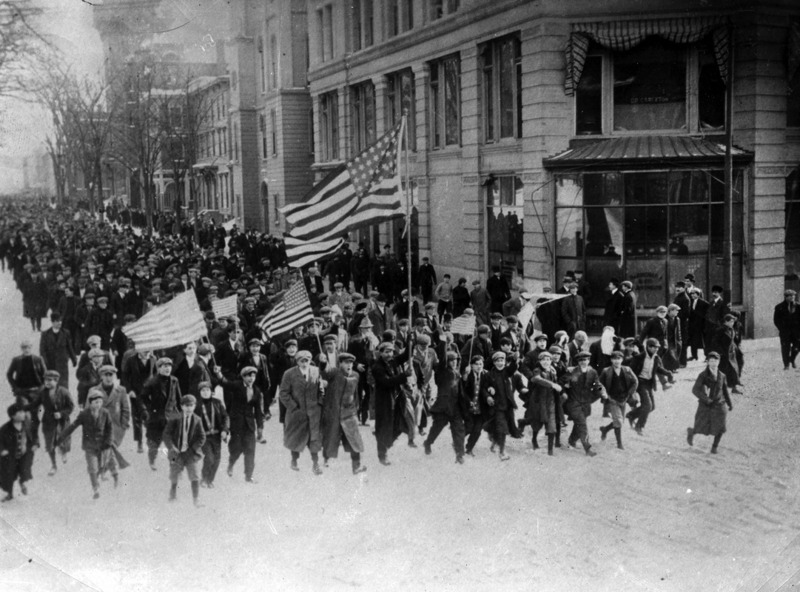Labour Song Tradition in America
Labour songs speak to the culture of the labour movement. They are passed down throughout the movement as oral tradition, and when you sing a labour song, you can feel that you are singing it alongside workers that have long since passed. Singing on the picket line, in prison cells, at a protest, or in a union hall, is a powerful action of determination, community, strength, and solidarity. Some songs are created from poets and musicians with recognition, while others have been created by the workers themselves, with no singular author to credit besides the masses.
There are two major types of labour songs: “magnetic,” and “rhetorical.” “Magnetic” labour songs are songs that can be sung with little instrumental backing, and are meant to unite workers and allies in song. “Rhetorical” labour and protest music, is instead typically sung by one musician with a more professional instrumental backing. Labour song tradition refers primarily to the “magnetic.”
A majority of labour songs are American in origin, tied to the long American folk song, slave song, and religious hymn traditions. Many labour songs have taken the tunes of these singing traditions and applied new lyrics to fit their purpose. The songs presented here are representative of some of the most popular labour songs from the early twentieth century that are still in use today, and will be used to examine the history of song and labour, and the relationship between labour song tradition with other American and African-American musical traditions.
